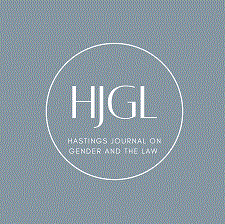
Abstract
After the Civil War, while the nation debated the range of rights which would be secured to the freedmen, the women's rights movement worked to insure that women would also receive equal rights, particularly the right to vote. When the Fourteenth and Fifteenth Amendments did not enfranchise women, many women who had fought against slavery and for universal suffrage felt betrayed. The Republican Party's refusal to include women's rights in the party platform deepened the sense of betrayal and forced suffragists I to take up their cause for equal rights of citizenship separately from the freedmen. Two inequities in particular animated women's rights activists' fight: married women's civil death in marriage, and all women's lack of political rights.
Recommended Citation
Louisa S. Ruffine,
Civil Rights and Suffrage: Myra Bradwell's Struggle for the Equal Citizenship for Women ,
4 Hastings Women's L.J. 175
(1993).
Available at: https://repository.uclawsf.edu/hwlj/vol4/iss2/2

